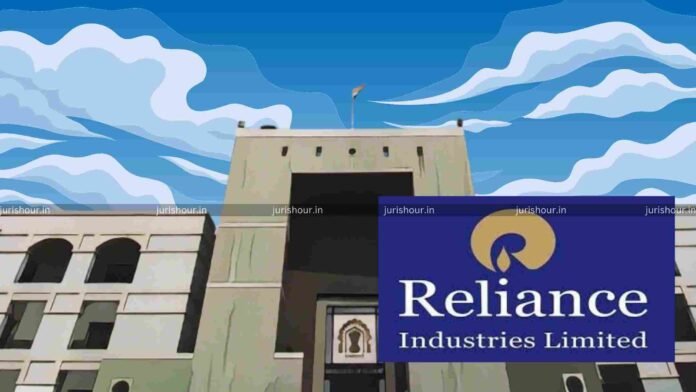The Gujarat High Court has quashed the show cause notice on Reliance’s EOU for LPG cleared to DTA citing voluntary pre-SCN duty-payment.
The Bench of Justice Bhargav D. Karia and Justice Pranav Trivedi held that RIL had voluntarily discharged its duty and interest liabilities before the issuance of any show-cause notice, and therefore, the invocation of the extended period of limitation and imposition of penalties were unjustified.
The bench dismissed two appeals filed by the Commissioner of Customs (Preventive) against Reliance Industries Limited (RIL), upholding the order of the Customs, Excise and Service Tax Appellate Tribunal (CESTAT), which had set aside penalties imposed on the company under the Customs Act, 1962 and the Central Excise Act, 1944.
The respondent/assessee, Reliance Industries, a 100% Export Oriented Unit (EOU) operating under permission from the Kandla Special Economic Zone, was engaged in manufacturing refined petroleum products, LPG, petrochemical products, and other petroleum-based derivatives. The company had availed duty exemptions on imported and locally procured inputs under several exemption notifications, including Notification No. 52/2003-Cus and Notification No. 22/2003-CE.
During 2007, RIL cleared domestically produced Liquefied Petroleum Gas (LPG) into the Domestic Tariff Area (DTA) without payment of duty, availing exemption meant for LPG supplied under government subsidy schemes. The department subsequently issued two show-cause notices in April 2008, alleging that the company had wrongfully availed exemptions and failed to discharge duties forgone on inputs used for DTA-clearances.
The Adjudicating Authority confirmed substantial demands and penalties against Reliance Industries, including Customs Duty, Central Excise Duty and Interest and Penalties.
RIL had, however, paid the entire duty forgone along with interest on 15 October 2007 — prior to the issuance of the show-cause notices.
The CESTAT, in its 2012 order, held that RIL had not suppressed any material facts from the department. The company had voluntarily paid duty and interest on its own accord. The extended limitation period under Section 28 of the Customs Act and Section 11A of the Central Excise Act could not be invoked. Penalties imposed under Section 114A and Section 11AC were therefore unsustainable.
The Tribunal emphasized that under Section 28(2B) of the Customs Act and Section 11A(2B) of the Central Excise Act, no show-cause notice could be issued when duty and interest were voluntarily paid before any such notice.
The Customs Department challenged the CESTAT’s decision, contending that RIL had suppressed material facts regarding input consumption and duty liability. It argued that the company’s payment of duties and interest was an admission of liability, warranting penalty and invocation of the extended limitation period.
Senior Advocate Mihir Joshi, appearing for RIL, countered that the company had acted transparently, filed statutory returns indicating “NIL” duty clearances, and made the payments voluntarily after realizing the non-applicability of exemptions for inputs used in DTA clearances. He maintained that no suppression existed and that the CESTAT’s findings were factual and legally sound.
The Gujarat High Court, after analyzing the material on record, sided with RIL and upheld the Tribunal’s conclusions.
The Bench observed that the company had informed the department and paid the duty with interest before any show-cause notice was issued. There was no suppression or misrepresentation of facts with intent to evade duty. The extended period of limitation was therefore not applicable. Penalties under Section 114A of the Customs Act and Section 11AC of the Central Excise Act could not be sustained.
The Court also referred to its earlier decision in Commissioner vs. Tejas Agency (2014) and the Karnataka High Court’s ruling in Adecco Flexione Workforce Solutions Ltd. (2012), which held that when duty or tax is paid voluntarily with interest before a show-cause notice, penalties cannot be imposed.
Holding that the CESTAT had correctly applied the law, the High Court ruled, “No penalty under Section 114A of the Customs Act, 1962 or Section 11AC of the Central Excise Act, 1944 could have been levied in absence of any suppression or misrepresentation. The appeals, being devoid of merit, are accordingly dismissed.”
Case Details
Case Title: Customs Commissioner Versus Reliance Industries Ltd
Case No.: R/Tax Appeal No. 448 Of 2013
Date: 08/10/2025
Counsel For Petitioner: Utkarsh R Sharma
Counsel For Respondent: Mihir Joshi
Read More: GSTR-9/9C Updates for FY 2024–25: Key Changes Every Tax Professional Must Know

